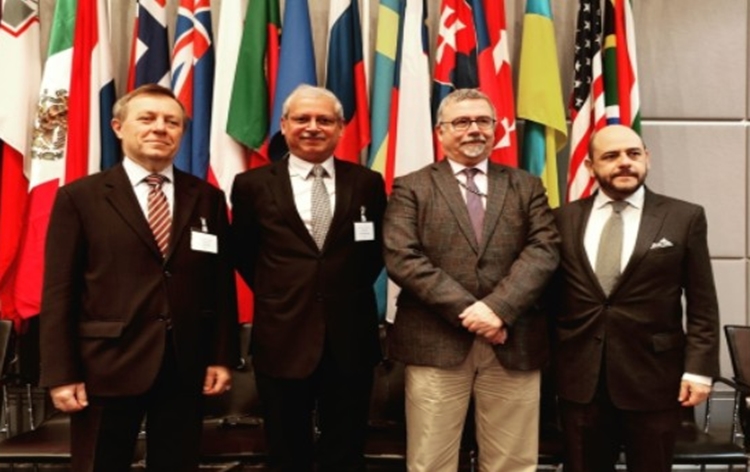India Assumes Chairmanship of Wassenaar Arrangement
The Wassenaar Arrangement (WA), a voluntary export control regime that monitors the transfer of conventional weapons and dual-use goods, has announced that India will assume the chairmanship of its plenary for the next year. The 26th annual plenary of the WA, held in Vienna on November 30 and December 1, saw Ireland’s ambassador Eoin O’Leary hand over the chairmanship to India’s ambassador Jaideep Mazumdar, the permanent representative to the UN and international organizations in Vienna. India joined the WA in December 2017 as its 42nd participating state.
What is the Wassenaar Arrangement?
The Wassenaar Arrangement is a multilateral export control regime that promotes transparency and responsibility in the transfer of conventional arms and dual-use goods and technologies through regular exchanges of information among its members. The regime aims to track such transfers and prevent “destabilizing accumulations” of conventional arms and dual-use goods. The WA operates on a consensus basis and its plenary is the main decision-making body.
The WA is an elite group of countries that subscribe to arms export controls, similar to the Nuclear Suppliers Group and the Missile Technology Control Regime. It was established in 1996 to succeed the Cold War-era Coordinating Committee for Multilateral Export Controls and is named after Wassenaar, a suburb of The Hague where the agreement to start such multilateral cooperation was reached in 1995. The WA is headquartered in Vienna and currently has 42 members, with all permanent members of the UN Security Council (except for China) being signatories.
How Does the Wassenaar Arrangement Work?
The goal of the WA is to “promote transparency and greater responsibility in transfers of conventional arms and dual-use goods and technologies,” according to the WA website. Participants are required to ensure that transfers of these items do not contribute to the development or enhancement of military capabilities that undermine the goal of the WA, which is also to prevent the acquisition of these items by terrorists. The WA operates using what it calls WA Control Lists, which are subject to ratification by the participants. Members of the WA agree to exchange information on sensitive dual-use goods and technologies and report on such transfers and denials of controlled items to non-participants.
What Does This Mean for India?
India’s membership in the WA has aided its efforts to gain access to sensitive goods and technologies from leading players in the West. Additionally, as a non-signatory of the Nuclear Non-Proliferation Treaty, India hopes that its membership in the WA will boost its credentials to enter the Nuclear Suppliers Group (NSG). It is worth noting that China, which has blocked India’s entry into the NSG, is not a member of the WA.
Criticisms of the Wassenaar Arrangement
Some critics view the WA as a Cold War instrument with a different name, arguing that it perpetuates a digital divide by restricting western companies and governments from supplying crucial technologies to emerging markets. Computer scientists and policy analysts have also expressed concern that developed economies are using less developed countries as guinea pigs for their cybersecurity research by supplying them with intrusive technologies that could be used for mass surveillance. The Electronic Frontier Foundation, a digital rights group, has accused the United States of seeking even narrower restrictions on technology transfer.
Month: Current Affairs - January, 2023
Category: International / World Current Affairs


